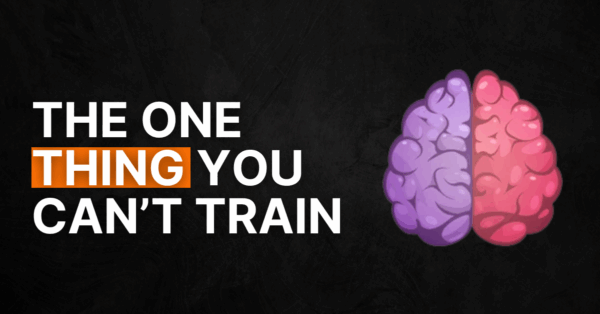Every operator in iGaming claims they’re building “experiences” and crafting “player journeys.” They throw around words like “immersive,” “personalised,” and “community-driven” like they’re handing out participation trophies at a school sports day.
But let’s be real. Most of you are just making transactions less painful with better UX. You’ve confused reducing friction with creating meaning.
True experience economy isn’t about faster onboarding or personalised bonus offers. It’s about creating moments that people actually remember and want to tell stories about. And right now? The industry is solving the wrong fucking problem.
The Transaction Trap
Look at what the industry calls “experience innovation”:
- Faster onboarding? That’s just less friction in your transaction funnel.
- “Personalisation”? A survey found that 56% of players are more likely to open a message when the offer matches their preferences. That’s messaging efficiency, not the same as designing an experience people remember.
- Mobile-first platforms? Mobile now drives roughly 66-73% of B2C social gaming revenue. You’ve perfected convenience. That doesn’t mean you’ve built meaning.
The average mobile gaming session is 6-8 minutes. Operators optimise for quick, mobile-first loops. That’s someone checking their phone between meetings, placing a quick bet, and moving on with their life. There’s nothing immersive about that.
And your gamification (the leaderboards, achievements, daily rewards), the research promotes these as engagement drivers. But in practice? Most implementations are just dopamine optimisation unless they ladder into shared stories, status with social meaning, and player identity. Otherwise, you’re just making the transaction more addictive, not more meaningful.
What Experience Actually Means
Let me show you what real experience economy looks like. Think Disney. They don’t optimise transactions; they create memories people cherish for decades. Everything from cast member interactions to park design tells a cohesive story. People pay premium prices because the experience itself has inherent value beyond the rides.
Now compare that to iGaming.
The research clearly shows that land-based venues still excel in providing social and leisure components. Online Bingo? Only captured about 10% of the total bingo market by 2019, precisely because it lost the social interaction that made physical bingo halls appealing. Players valued the community experience more than the convenience of playing from home.
That should terrify you. Or at least make you think.
Your community features (those chatboxes, those multiplayer tournaments) they’re often under-utilised in practice. Real community means shared narratives, inside jokes, and collective experiences that players carry with them. Not a dead chat window next to a slot machine.
Let’s talk about progression. The research emphasises that players want meaningful advancement, but what are most operators giving them? Arbitrary loyalty points that convert to cashback percentages. That’s not progression; that’s just a discount program with extra steps.
The research contrasts skill-based games with games of chance. Skill-based verticals like poker more naturally support mastery and genuine development. Players feel growth over months and years. But with pure chance games like slots, most sports betting formats, bingo, where’s that sense of journey? The skill-versus-chance distinction the research makes implies this gap, even if it doesn’t state it directly.
The research explicitly mentions “awe-inspiring moments” and brand storytelling as key drivers of emotional connection. But most operators’ brand values are just corporate word salad: “trust, innovation, entertainment.” Meaningless. Interchangeable. Forgettable.
Here’s the core insight: experiences are remembered. Transactions are forgotten.
The Path Forward
First, stop calling everything an experience. Be honest about what you’re building. Optimised transactions are genuinely valuable, just don’t pretend they’re something they’re not.
If you want to build actual experiences, here’s what that requires:
- Build for stories. What moments could players share? Not “I won £500” but “I was part of this insane live tournament where…” Create events with narrative arcs. Community challenges with genuine stakes. Shared moments that become part of player identity.
- Create real progression. Not VIP tiers that are just spend thresholds. Genuine skill development. Community status that means something. Let players curate their entire relationship with your platform.
- Embrace actual community. Look at PokerStars VR—it became a top-five Oculus experience because players weren’t just playing poker, they were hanging out, joking around, developing relationships. That’s community.
But here’s the paradox: there’s genuine tension between creating engaging experiences and promoting responsible gaming. The more immersive and compelling you make things, the more careful you need to be about problematic behavior.
Although (speculatively) true experience economy might actually be safer. If people stay for the experience rather than just the dopamine hit of wins and losses, you might build healthier relationships with players. But that requires a completely different design philosophy than current engagement optimisation.
The Uncomfortable Truth
Most operators won’t do this. It’s expensive. It’s risky. You can’t A/B test your way to genuine meaning. It’s much easier to optimise your transaction funnel, add some personalised push notifications, and call it “experience innovation.”
But the next generation of successful operators won’t win with better bonuses or faster withdrawals. They’ll win by making players feel something beyond the win/loss cycle. By creating spaces where people want to spend time, not just money.
Until then, let’s stop pretending your personalised bonus offers and gamified loyalty programs are creating “immersive player journeys.”
They’re just making it easier to click “deposit.”
And deep down, you already know that.


